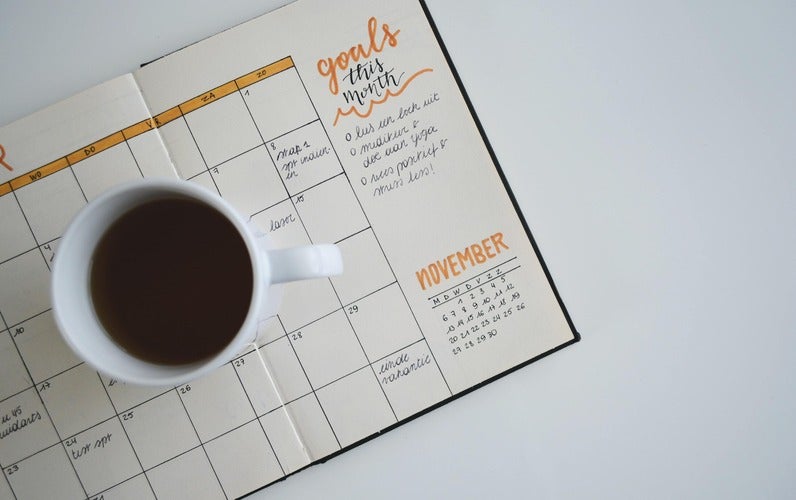You've heard the age-old truism before: getting started is the hardest part. It's actually kind of true despite how cliché it may sound; ask any Wattpad writer. Chances are, they can relate to having struggled at one point—at least in the beginning of their writing career—just to get started on a story.
The good news is you're not alone. The even better news is that there are plenty of ways to tackle writing your first story, whether it's just for you or to post on Wattpad for the world to see. And once you've got these tricks nailed down, writing the next (and the next, and the next…) story will be a breeze.
From learning how to set goals to embracing flexibility, here are some tried-and-true ways to get your story started.
1. Flesh out your ideas
You're a writer and you probably always have tons of incredible ideas rattling around in that creative mind of yours. Which one do you keep coming back to? Which one excites you? Close your eyes and imagine that world, those characters, the main plot. Set a timer for 15 minutes and get all of those ideas on paper without editing yourself. No idea is off limits. Once you're done, take a step back and highlight or circle the ideas you really love. Free writing like this helps get the creative juices flowing and narrows down on your top ideas. If you have no ideas, try using prompts to get yourself started.
2. Choose an inspiring title
What are some of the titles of your favorite stories? What do they evoke? How do they make you feel? So much can be said in just a short story title. Now that you've done your free writing and have collected some of your top ideas, think of an inspiring title for your story. This doesn't have to be the one you stay with in the end, but having your title in mind helps keep you tethered to your story and working towards the finish line. Once you have your title, it's real. Now all you have to do is write the thing.
3. Write your synopsis
Similar to your placeholder title, you're going to want to build out a short synopsis of your story, too. Unlike an in depth draft, a synopsis can be brief, and somewhat vague and high level. The point is to work in all your main ideas and use this as a guideline to writing your story. Just like your title, the synopsis can change, too. The beauty of this step is it's short and relatively simple to accomplish. All the title and synopsis does is help keep you focused on what you're writing. You have the ideas down, so you might as well write it, right?
4. Set writing goals for yourself
If you're goal-oriented, setting some writing goals for yourself could be extremely beneficial to you. Goals help keep our sights set on our project and keep us motivated to continue writing by breaking up the process into small, easy to accomplish tasks. Your end goal is to complete a story, but a lot has to happen before that.

5. Start small—and not at the beginning
Something wild and unbelievable doesn't need to happen within the first few pages, or even the first few chapters, of your story. Don't worry about making a huge splash to keep your reader's attention. It'll make the rest of your job tricky because it's hard to keep that momentum throughout the rest of your story. Choose a story structure that speaks to you, start small, and build up from there. That's more than enough to keep people reading.
It seems logical to start from the very beginning, but it's not always the best way to get going on your story. A strong beginning often comes after the story is finished, once you know your characters, plot, and world like the back of your hand. It's easy to get stuck here if you don't know how to perfectly start your story. The solution? Don't start at the beginning. Start somewhere in the middle instead. Movies aren't shot in sequence, just like stories are usually not written in the order the pages and chapters appear.
6. Be flexible
Just because you had a great idea in the beginning doesn't mean you have to stick to it if it's not working out while you're writing. Maybe you decide to scrap an entire subplot or character, or add in something new. Flexibility is the name of the game. Don't be afraid to go with the flow of your writing process and allow things to change. Your story will be better for it in the end because you went with what felt natural in the moment.
7. Don't edit while you write
There's a reason why stories go through rigorous editing processes. Editing yourself while you're writing your first pages or chapters can get in the way of your natural creativity. Take the pressure off yourself and just write. Save the editing for when you're done your first draft.
8. Learn how to build a captivated audience
It's never too early to think about your future (or current fans). You have an amazing story in the works and want to make sure plenty of people get to read it, but how exactly? Of course, making sure you have a unique, compelling story (which you do!) is step one. Updating frequently is important, too, as well as giving your work a thorough edit to get rid of any grammar or spelling mistakes. Keeping chapters to an easy-to-digest 1,500-2,000 word count is ideal, as is making sure you're tagging your story accurately so readers can find it.
Readers come for the story and often stay because they love the writer. Personalizing your Wattpad profile, following other Wattpadders, engaging with your favorite stories, and starting conversations with other readers are all great ways to connect with your audience and get more people reading your stories.
Need help getting started? Want to ditch writer's block? Head over to Creators 101, your one-stop shop for resources that will help inspire your storytelling creativity, grow your audience, and sharpen your writing skills.





















